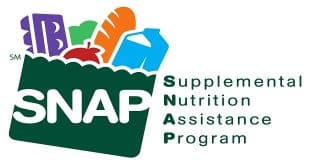INDIANAPOLIS (November 4, 2015) – Beginning this week, Indiana criminal justice providers (courts, probation and parole officers and community corrections organizations) can begin referring eligible felony criminal offenders with mental illness or substance addiction issues to designated treatment agencies in lieu of simply ordering them to be jailed or imprisoned as part of the state’s newly launched “Recovery Works” program. Recovery Works is a new program of the Indiana Family and Social Services Administration’s (FSSA) Division of Mental Health and Addiction (DMHA). Recovery Works is dedicated to increasing the availability of specialized mental health and addiction treatment and recovery services in the community for those without insurance coverage who may otherwise face incarceration.
“Recovery Works is a critical initiative aimed at ensuring felony criminal offenders with mental or substance addiction issues can get the help they need,” said Governor Mike Pence. “The cycle of recidivism has a profound impact on our families and our neighborhoods, and I have long believed that people deserve a second chance to re-enter society and become productive, law-abiding citizens. By tackling mental health and substance addiction issues across our state, we are hoping to advance recovery and transition offenders back into our communities to live healthier, successful lives.”
Of the current prison population in the United States, 16 percent of inmates have a diagnosed serious mental illness. Over half of those incarcerated in state prisons (53 percent) and just under half (45 percent) in our federal prisons have a substance use disorder diagnosis. Assessments conducted by the Indiana Department of Correction indicate that more than 80 percent of offenders in state prisons are in need of addiction treatment. (By comparison, in the general public, the prevalence rate of people with a serious mental illness or substance use disorder is 5.4 and 8.8 percent, respectively.) Of the population who return to prison, the percentage of persons with a substance use disorder reaches 75 percent on a national level.
“As a practicing psychiatrist, and as the co-chair of the Governor’s Task Force on Drug Enforcement, Treatment, and Prevention, I can’t emphasize enough how important an opportunity this is for Indiana to lead the way in increasing access to treatment for both mental health and addiction to those involved in the criminal justice system,” said Dr. John Wernert, FSSA secretary. “Recovery Works will provide a positive starting point, as we address the issues of the disproportionate number of incarcerated individuals whose mental illness and addictions are not being properly treated.”
In 2012, the Council of State Governments Justice Center (CSGJC) prepared a white paper titled “Adults with behavioral health needs under correctional Supervision: a shared framework for reducing recidivism and promoting recovery,” which provided an outline for how corrections, mental health and substance use disorder systems can share a commitment to help individuals successfully address their needs and avoid criminal justice involvement. In 2015, the Indiana General Assembly passed House Enrolled Act (HEA) 1006, “Criminal Justice Funding,” which established the Forensic Treatment Services Grant Program through the Division of Mental Health and Addiction (DMHA), the program now known as “Recovery Works.” This grant program will fund the voucher-based program that will give vouchers to providers that offer specialized services to those struggling with mental illness and/or substance addiction. This system is intended to cover the cost of services for individuals without insurance or Medicaid. HEA 1006 grants $10 million for the first year of the program and $20 million for the second year. Recovery Works will work with DMHA-certified agencies that demonstrate competency in the treatment of populations with criminogenic risk factors.
“There is a prevailing need for a partnership between the criminal justice system and mental health and addiction service providers in order to reduce recidivism and encourage recovery,” said Kevin Moore, DMHA director. “We believe that for many of these individuals, treatment is the answer – not incarceration. Appropriate treatment will help them return to a level of functioning that will allow them to be a contributing member of the community, rather than returning to the criminal justice system.”
DMHA has been working intensively since August to enroll certified DMHA treatment providers, community mental health centers, substance use treatment providers, psychiatric in-patient providers and others, to become Recovery Works providers.
More information about Recovery Works, as well as information on how to enroll to become a Recovery Works provider is available at RecoveryWorks.FSSA.IN.gov or by visiting www.IN.gov and searching “Recovery Works.”
The Division of Mental Health and Addiction (DMHA) is a division of the Indiana Family and Social Services Administration (FSSA).






